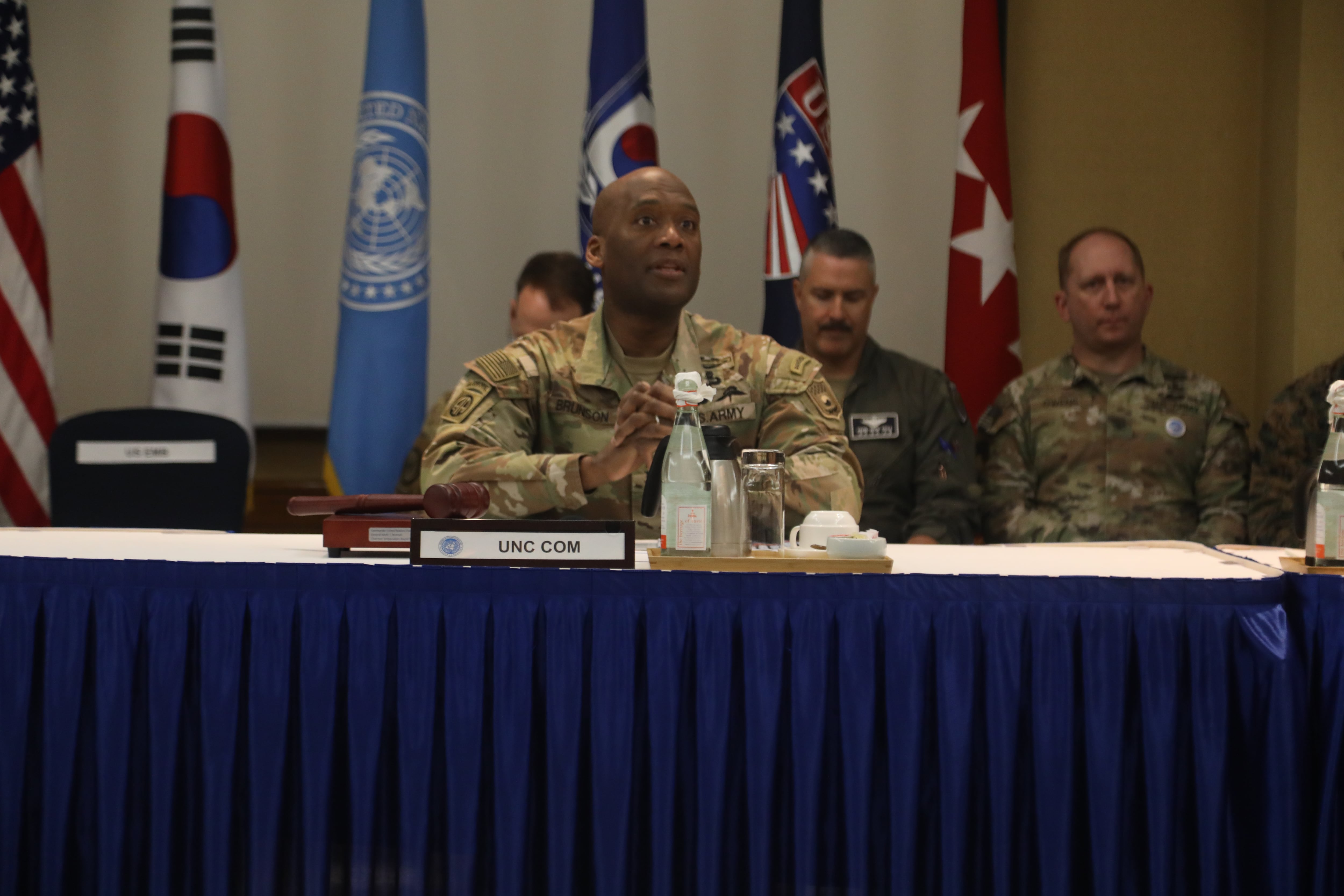One day after President Donald Trump suggested he might reduce the U.S. military footprint in South Korea, the head of U.S. Forces Korea testified that current troop levels are needed for pressing missions and challenges in the Pacific region.
“The troops that we have in the Republic of Korea are responsible wholly for preserving peace on the peninsula and in the region,” Army Gen. Xavier Brunson, who also serves as head of Combined Forces Command, told members of the Senate Armed Services Committee on Thursday.
“They are a critical component to ballistic missile defense in the region. They are critical to helping Indo-Pacific Command see, sense and understand threats to the north and to deter a great many adversaries.”
Currently, roughly 28,500 U.S. military personnel are stationed in South Korea, working with both regional military partners and United Nations countries. The Defense Department has had at least 25,000 American troops deployed continuously there since the early 1950s.
RELATED

But Trump and his advisers have questioned the value of the long-term presence of American military forces at a number of overseas locations. During an Oval Office ceremony on Wednesday, Trump was asked about reducing the number of American troops stationed in Europe, and injected Korea into his answer.
“We pay for U.S. military in Europe, and we don’t get reimbursed by much. South Korea, too,” he said. “It will be one of the things that we discuss that is unrelated to trade, but we’ll make it part of the trade conversation. It would be nice to wrap it all up together.”
At the start of Thursday’s hearing, Senate Armed Services Committee ranking member Jack Reed, D-R.I., noted “there are rumors that the Defense department will direct a reduction of U.S. presence in South Korea, or retask these forces to focus on the threat from China” instead of North Korea.
Brunson did not address any of the force level change discussions directly, but said that from a military strategy standpoint, “we need to remember there is diplomacy and defense on the Korean Peninsula currently.”
He urged “strategic clarity” with any changes in force posture in the region, to ensure allies and adversaries understand America’s commitment to stability in the region.
Adm. Samuel Paparo, head of U.S. Indo-Pacific Command, told lawmakers at the hearing that the forces stationed in Korea benefit not only that country but also numerous other allies in the region.
“They make significant contributions outside the Korean peninsula, including in their participation in multilateral exercises,” he said.
Defense Department officials have not announced any formal plans to begin force reductions or significant posture changes in the region. Trump did not provide any additional details on when a review of troop levels in Europe or the Pacific may begin.
Leo covers Congress, Veterans Affairs and the White House for Military Times. He has covered Washington, D.C. since 2004, focusing on military personnel and veterans policies. His work has earned numerous honors, including a 2009 Polk award, a 2010 National Headliner Award, the IAVA Leadership in Journalism award and the VFW News Media award.





